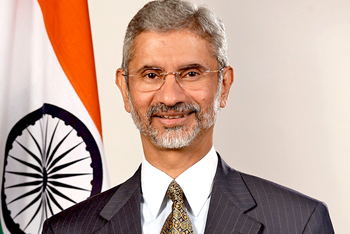New Delhi, Jan 29: S Jaishankar today took charge as Foreign Secretary, replacing Sujatha Singh whose tenure was abruptly "curtailed" late last night.

"Government's priorities are my priorities," said Jaishankar, a 1977-batch IFS officer, describing his new position as an "honour and a big responsibility".
Singh was not present when Jaishankar took charge at the South Block office.
He will have a two-year tenure as per rules.
Before his sudden appointment as Foreign Secretary, the 60-year-old diplomat was India's Ambassador to the US. He had also been posted as Ambassador to China, Singapore and Czech Republic.
The decision to appoint Jaishankar, who played a key role during Prime Minister Narendra Modi's visit to the US in September and US President Barack Obama's just concluded visit here, was taken by the Appointments Committee of the Cabinet chaired by Modi.
Singh had taken over as the third woman Foreign Secretary in August, 2013 and had eight more months to serve.
Jaishankar, son of late K Subrahmanyam, one of India's leading strategic analysts, was a key member of the Indian team which negotiated the landmark Indo-US nuclear deal.






Comments
Add new comment